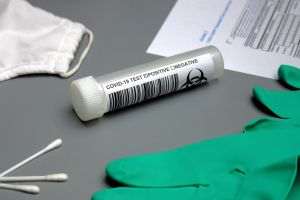Diseases have begun to come and go like patterns. Dengue fever will become a major threat in southern Europe, the southern United States, and new areas in Africa in this decade, as higher temperatures create favorable conditions for the mosquitoes that carry the virus to spread, according to the Chief Researcher of the WHO, Jeremy Farrar. The disease has long been a scourge in much of Asia and Latin America, causing approximately 20,000 deaths each year. Infections have already increased eightfold globally since 2000, largely due to climate change as well as increased human movement and urbanization. Many cases go unreported, but in 2022, 4.2 million cases were reported worldwide. Public health officials have warned that this year, near-record levels of transmission are expected. Currently, Bangladesh is facing its most severe epidemic in history, with over 1,000 deaths. "We need to talk much more proactively about dengue fever," said Jeremy Farrar, an infectious disease specialist who joined the World Health Organization in May of this year. "We really need to prepare countries for how they will cope with the additional pressure that will come in the future in many, many large cities," warned the WHO's chief researcher. Farrar worked in Vietnam for 18 years, working on tropical diseases, including dengue fever. Later, he headed the Wellcome Trust charity for global health and provided advice to the British government on responding to the COVID-19 pandemic before joining the WHO in May of this year. Farrar says it is possible for this infection to "take off" and become endemic in certain parts of the United States, Europe, and Africa - regions where there has already been limited local transmission - as global warming makes new areas suitable for disease-spreading mosquitoes. This will put significant pressure on healthcare systems in many countries, he warned. "Clinical care is truly intensive, requiring a high nurse-to-patient ratio," the researcher noted. "I am very concerned about when this will become a significant issue in sub-Saharan Africa," Farrar confessed. Most people who contract dengue fever do not exhibit symptoms, which means that case rates are much higher than reported figures. Those who fall ill can experience fever, muscle spasms, and joint pain so severe that it is known as "breakbone fever." In severe cases - less than 1% - the disease can be fatal. There is no specific treatment for dengue, although a vaccine is available. The WHO has recommended Takeda Pharmaceuticals' Qdengaa vaccine for children aged 6 to 16 in areas where the infection is a significant public health concern. Qdengaa is also approved by the EU regulatory authority, but Takeda withdrew its approval application in the United States earlier this year, citing data collection issues. Takeda said it is still in discussions with the US Food and Drug Administration regarding the vaccine. Dengue is spread by infected Aedes aegypti mosquitoes, which behave differently from malaria carriers. For example, they bite people indoors and are active throughout the day, not just at night. These mosquitoes also breed in very shallow water.
Southern Europe, threatened by a new disease
O.D.
English Section / 9 octombrie 2023




























































